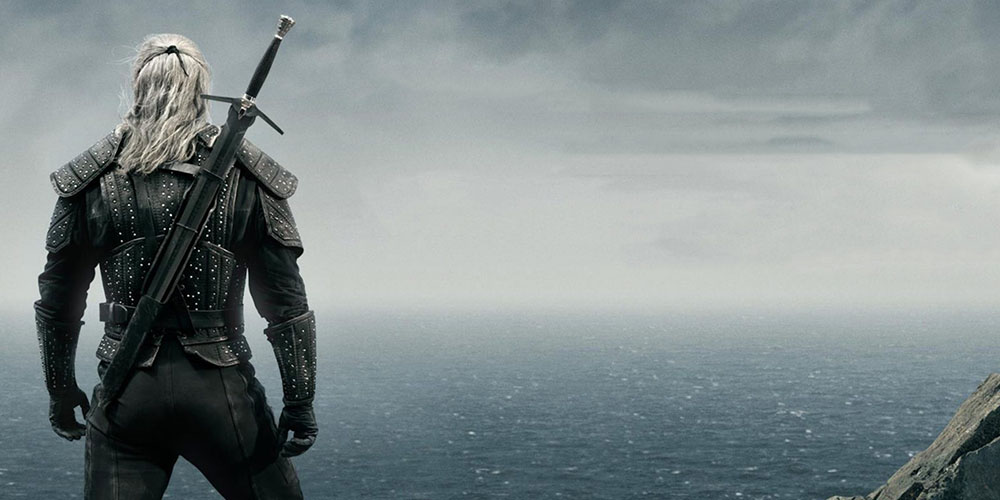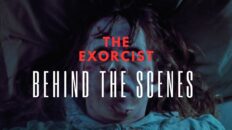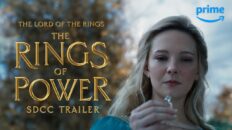While it may not look like it at first glance, The Witcher is a risky bet for Netflix. With Amazon gearing up its Lord of the Rings series, audiences clamoring for more Harry Potter, and (despite Game of Thrones’ disastrous final season) more shows in the works from HBO, it would seem there is an insatiable demand for fantasy media on television at the moment. Indeed, what used to be sequestered to nerds playing Dungeons & Dragons in basements or sharing used copies of The Lion, The Witch, and the Wardrobe, is now pop culture. Fantasy (and it’s cousin, sci-fi) is the biggest business in TV media at the moment.
Enter The Witcher. Popularized by the wildly successful video game series, the source material is actually a series of novels and short stories from Polish author Andrzej Sapkowski. He drew heavily from Polish folk tales, but also from the wider world of European folklore and Slavic mythology to create his fantasy world. And this is about as fantasy as it gets. There are many races—from the elves and dwarves you’re familiar with—to dryads, and monsters I couldn’t even pretend to spell just by hearing their names spoken aloud. There are mages and sorcerers with magic far more potent and in your face than anything Gandalf could do. There are seemingly an endless number of kingdoms with a long running history tying them all together. It has all the magic and more of Harry Potter, the politics of Game of Thrones, and the high fantasy adventure of Lord of the Rings.
Simply put; the series asks a lot of its viewer. Assuming you haven’t read the books (I haven’t) or played the games (haven’t done that either), the barrage of names and places in the first few episodes is dizzying. Adding to that, it also takes place in multiple timelines, and you have to pay pretty close attention to what’s going on contextually to understand when it is and why it matters. By the time the season gets to episode 5, however, I would say things click into place much more easily. At this point, I started to get a feel for the characters, time and place, and it was easier to follow. And the payoff of seeing it all come together in the final two episodes caps off a satisfying prologue. Anything this complicated was always going to need a longer break-in period for audiences, and Season 2 appears to be where the real story kicks off.
Given all this, it’s no guarantee the show will be a hit for Netflix. But for those who like the trailers, stick with it, because you’re in for a real treat. The main cast of Geralt of Rivia (Henry Cavill), Yennefer (Anya Chalotra) and Cirilla (Freya Allan) are fantastic. It’s funny, because Cavill seems best known at this point for playing fairly emotionless characters like Superman, but I think his style really shines on The Witcher as Geralt, where his small moments of sarcasm or emotion allow his character’s depth to really come through. He’s molded Geralt in such a way that even a grumble or grunt conveys a great deal. I’ve never been overly impressed with him as an actor, but while he seemed in his other big role to be Cavill in a Superman suit, in Witcher he is Geralt. He slips the character on like a suit and every mutter, smirk, and movement brings the character alive. Chalotra, similarly, exudes power and emotion as the sorceress Yennefer. Allan has a youthful charm with a steely undercurrent that adds some intrigue to her character. The main trio are simply splendid.
The show is a wonderful blend of political intrigue, surprising comedy, well-choreographed violence, often unnecessary nudity (though much tamer than GoT), and mystery. There’s a higher purpose that needs to be unraveled over the decades the show takes place. And for the most part it takes place not in the throne rooms where big decisions are made as in GoT, but on the ground where loner Geralt is swinging his sword. I can’t go into the plot too much because spoilers abound, but on a week–to–week basis, every episode does at least a small part to build the backstory of the characters as it works toward aligning their disparate timelines by the end of the season. Geralt’s job is mostly as a monster–of–the–week hunter, but I found this interesting because not only does it show that Geralt really is a professional, with a code of honor and morality, but he is also highly intelligent. Yennefer fights her own monsters as well, but most of them are personal demons rather than physical ones, as she searches over the course of decades for a life-fulfilling purpose that constantly eludes her.
Outside of the show, I think one of the major questions regarding Netflix’s choices here is around the “dump the entire season all at once” strategy. As a viewer I generally appreciate it, and especially for a show like this, with its non-linear nature, I appreciated being able to watch through chunks at a time so all the details were fresh in my mind. But for the sake of the show, I have to wonder if following The Mandalorian wouldn’t be wiser. On that show, where barely anything happens week to week, the entire internet is still ablaze with discussion on the latest episodes–even when there’s barely anything to discuss! Whether they like it or not, the nature of the internet and media in general lends itself to whatever is happening in the moment. Dumping an entire season makes a big splash, but the media pond settles fast, and is often upset by other things being dumped into it. After years of the viewing public spending countless hours debating the smallest details of every Game of Thrones episode, Netflix may want to re-evaluate how its shows generate buzz and become “Must See TV”. And in doing so, they might bolster Witcher’s case for being on the air for season after season. Otherwise they risk angering their fans but cutting short a show that has the chance to develop a major fan following before it really hits its stride. Imagine if they created a rotation where, with 8-10 episode seasons, Netflix had a new episode of one of its main five or six shows on every week of the year. With that strategy, Netflix would be on everyone’s minds the entire year. With so much competition now, they can’t afford to go dark for months until the next episode dump. There’s too much else going on to grab viewer attention.
Overall, I would recommend this show to anyone who likes what they see in the trailer. Do you want to watch Henry Cavill slash his way through monsters and knights? Do you want to chuckle along with a show that is as serious as they come but with a unique sense of humor? Do you want to see political intrigue mixed with interesting character development? Do you want to hear surprisingly catchy music from a sure to be fan favorite bard? Do you want to see multiple and completely unnecessary bath scenes with half naked Henry Cavill? I assume the answer to (most of) these questions is yes, in which case you should check it out and stick with it to the end. It will reward you for your effort.








